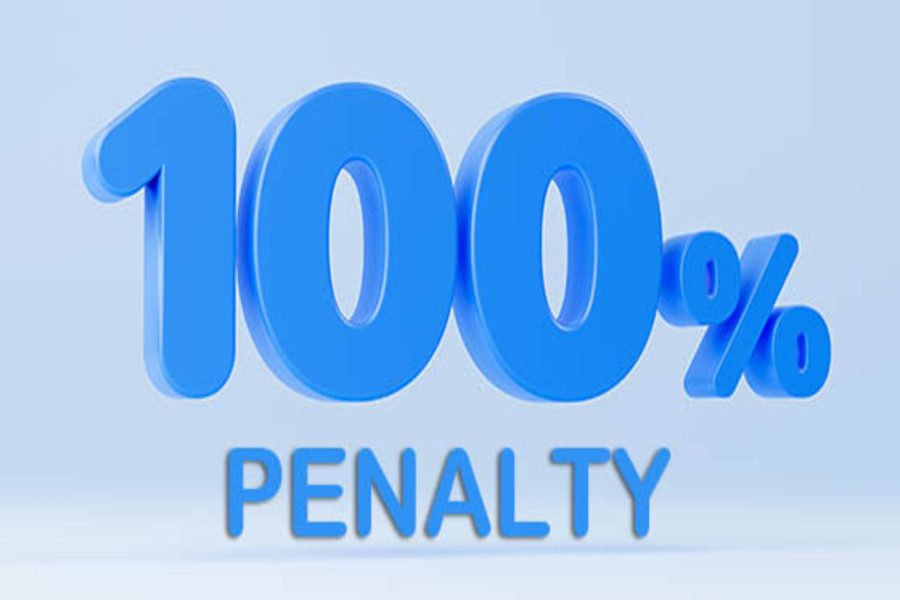Annual fraud risk assessments can be very effective in finding obvious fraud threats and documenting internal controls that are in place to minimize them. However, these assessments can overlook evolving and behavioral risks that could cause significant financial losses if bad actors exploit them. You can help boost the power of your risk-reduction program by actively looking for potential blind spots. Here are several examples of possible threats and how you can mitigate them: Performance pressure. Unrealistic performance targets that employees can’t achieve legitimately may create a “win at all costs” culture that encourages cheating. This is particularly true if you tie compensation to overly aggressive goals. You can reduce this risk by ensuring performance metrics include integrity-related measures. In addition, performance outliers should be analyzed, and...

Once your 2024 tax return is in the hands of the IRS, you may be tempted to clear out file cabinets and delete digital folders. But before reaching for the shredder or delete button, remember that some paperwork still has two important purposes: Protecting you if the IRS comes calling for an audit, and Helping you prove the tax basis of assets you’ll sell in the future. . Keep the return itself — indefinitely Your filed tax returns are the cornerstone of your records. But what about supporting records such as receipts and canceled checks? In general, except in cases of fraud or substantial understatement of income, the IRS can only assess tax within three years after the return for that year was filed (or three years after...
Dividing marital assets can be a long, complicated process, especially if a divorce case involves a private business interest. Failure to hire a business valuation professional — whether to try to save money or time — can prove disastrous in court. Complex valuation matters Business valuators can provide answers to five critical financial questions in a divorce: 1. How much is my business interest worth? There are three ways to value a business: the cost, market and income approaches. All these techniques start with the company’s financial statements. But discovery shouldn’t stop there, particularly for spouses not involved in day-to-day business operations. Valuation experts should be given equal access to financial records and opportunities to tour the company’s facilities and interview management. Inadequate discovery can cause an expert...
With summer fast approaching, you might be considering hiring young people at your small business. If your children are also looking to earn some extra money, why not put them on the payroll? This move can help you save on family income and payroll taxes, making it a win-win situation for everyone! Here are three tax benefits. You can transfer business earnings Turn some of your high-taxed income into tax-free or low-taxed income by shifting some business earnings to a child as wages for services performed. For your business to deduct the wages as a business expense, the work done by the child must be legitimate. In addition, the child’s salary must be reasonable. (Keep detailed records to substantiate the hours worked and the duties performed.) For...
Fraud schemes are always evolving. Once frauds are widely publicized and consumers and businesses learn to spot common scams, enterprising criminals change their tactics. So even if you were able to recognize the red flags of fraud a couple of years ago, you may be vulnerable to new or tweaked scams in 2025. For the health of your business, it’s essential to stay on top of fraud developments. From phone to text . Although the phone used to be fraudsters’ preferred device, perpetrators are now more likely to scam victims via email or text. According to credit bureau Experian, imposter scams (where a crook often pretends to be someone the victim already knows) perpetrated via phone calls have decreased, from 67% in 2020 to 32% in...
Some tax sins are much worse than others. An example is failing to pay over federal income and employment taxes that have been withheld from employees’ paychecks. In this situation, the IRS can assess the trust fund recovery penalty, also called the 100% penalty, against any responsible person. It’s called the 100% penalty because the entire unpaid federal income and payroll tax amounts can be assessed personally as a penalty against a responsible person, or several responsible persons. Determining responsible person status Since the 100% penalty can only be assessed against a so-called responsible person, who does that include? It could be a shareholder, director, officer or employee of a corporation; a partner or employee of a partnership; or a member (owner) or employee of an LLC. To...
When you prepare your tax return, you’ll check one of the following filing statuses: single, married filing jointly, married filing separately, head of household or qualifying widow(er). Only some people are eligible to file a return as a head of household. But if you’re one of them, it’s more favorable than filing as a single taxpayer. To illustrate, the 2025 standard deduction for a single taxpayer is $15,000. However, it’s $22,500 for a head of household taxpayer. To be eligible, you must maintain a household that, for more than half the year, is the principal home of a “qualifying child” or other relative of yours whom you can claim as a dependent. Tax law fundamentals Who’s a qualifying child? This is one who: Lives in your home for...
Valuation professionals use various methods to determine the fair market value of a private business or business interest. One of the more debated techniques is the excess earnings method. Here are answers to some common questions about this controversial method. What’s the excess earnings method? The U.S. Department of the Treasury originally developed the excess earnings method in 1920 to estimate value lost by businesses during Prohibition. This method separates a business’s earnings into two categories: Earnings attributable to tangible assets, and . Excess earnings, which represent returns on intangible assets. . Although not initially designed as a business valuation tool, the excess earnings method is easy for business owners, attorneys and judges without extensive financial expertise to understand. So it’s sometimes used to value professional practices and small businesses. How...
For federal income tax purposes, the general rule is that rental real estate losses are passive activity losses (PALs). An individual taxpayer can generally deduct PALs only to the extent of passive income from other sources, if any. For example, if you have positive taxable income from other rental properties, that generally counts as passive income. You can use PALs to offset passive income from other sources, which amounts to being able to currently deduct them. Unfortunately, many rental property owners have little or no passive income in most years. Excess rental real estate PALs for the year (PALs that you cannot currently deduct because you don’t have enough passive income) are suspended and carried forward to future years. You can deduct suspended PALs when you...
Suppose your adult child or friend needs to borrow money. Maybe it’s to buy a first home or address a cash flow problem. You may want to help by making a personal loan. That’s a nice thought, but there are tax implications that you should understand and take into account. Get it in writing You want to be able to prove that you intended for the transaction to be a loan rather than an outright gift. That way, if the loan goes bad, you can claim a non-business bad debt deduction for the year the loan becomes worthless. For federal income tax purposes, losses from personal loans are classified as short-term capital losses. You can use the losses to first offset short-term capital gains that would otherwise be...
- 1
- 2
- 3
- 4
- 5
- 6
- 7
- 8
- 9
- 10
- 11
- 12
- 13
- 14
- 15
- 16
- 17
- 18
- 19
- 20
- 21
- 22
- 23
- 24
- 25
- 26
- 27
- 28
- 29
- 30
- 31
- 32
- 33
- 34
- 35
- 36
- 37
- 38
- 39
- 40
- 41
- 42
- 43
- 44
- 45
- 46
- 47
- 48
- 49
- 50
- 51
- 52
- 53
- 54
- 55
- 56
- 57
- 58
- 59
- 60
- 61
- 62
- 63
- 64
- 65
- 66
- 67
- 68
- 69
- 70
- 71
- 72
- 73
- 74
- 75
- 76
- 77
- 78
- 79
- 80
- 81
- 82
- 83
- 84
- 85
- 86
- 87
- 88
- 89
- 90
- 91
- 92
- 93
- 94
- 95
- 96
- 97
- 98
- 99
- 100
- 101
- 102
- 103
- 104
- 105
- 106
- 107
- 108
- 109
- 110
- 111
- 112
- 113
- 114
- 115
- 116
- 117
- 118
- 119
- 120
- 121
- 122
- 123
- 124
- 125
- 126
- 127
- 128
- 129
- 130
- 131
- 132
- 133
- 134
- 135
- 136
- 137
- 138
- 139
- 140
- 141
- 142
- 143
- 144
- 145
- 146
- 147
- 148
- 149
- 150
- 151
- 152
- 153
- 154











